Counting practice Easy Addition Worksheets for Ages 3-9
5 filtered results
-
From - To
Welcome to our Counting Practice Easy Addition Worksheets, designed specifically for kids aged 3-9! These engaging worksheets make math fun and accessible, helping young learners develop essential counting and addition skills. With colorful visuals and age-appropriate problems, children can practice basic addition through playful activities that encourage their excitement for learning. Whether in the classroom or at home, our worksheets provide valuable opportunities for toddlers, preschoolers, and early elementary students to strengthen their understanding of numbers. Support your child's educational journey and boost their confidence with our easy-to-follow, interactive counting practice worksheets! Start making math enjoyable today!
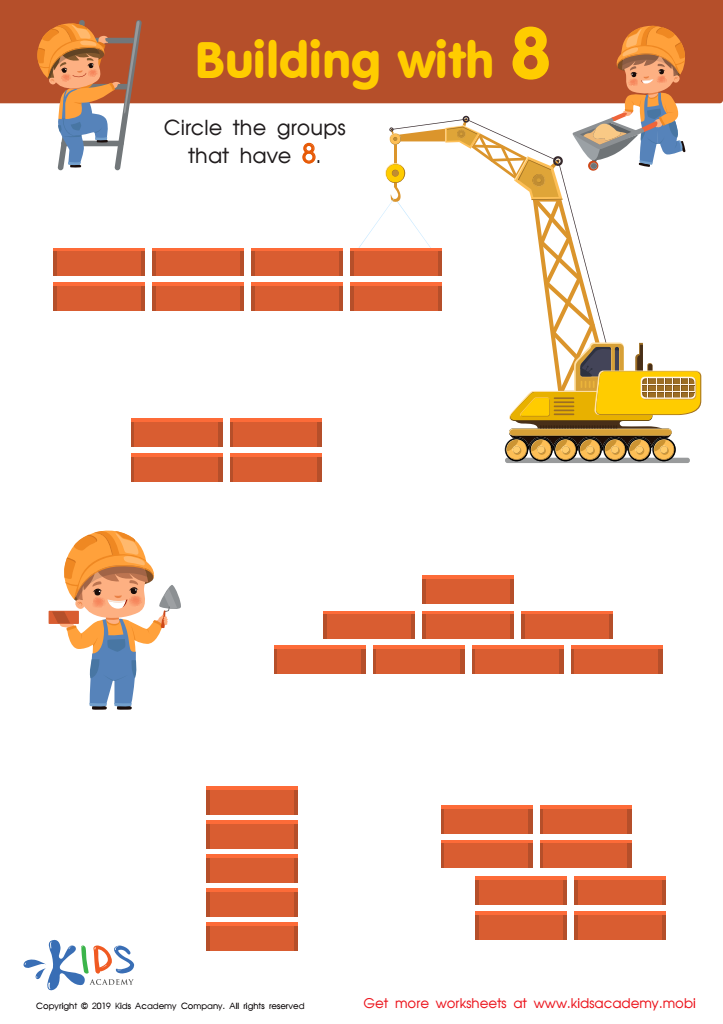

Building with 8 Worksheet
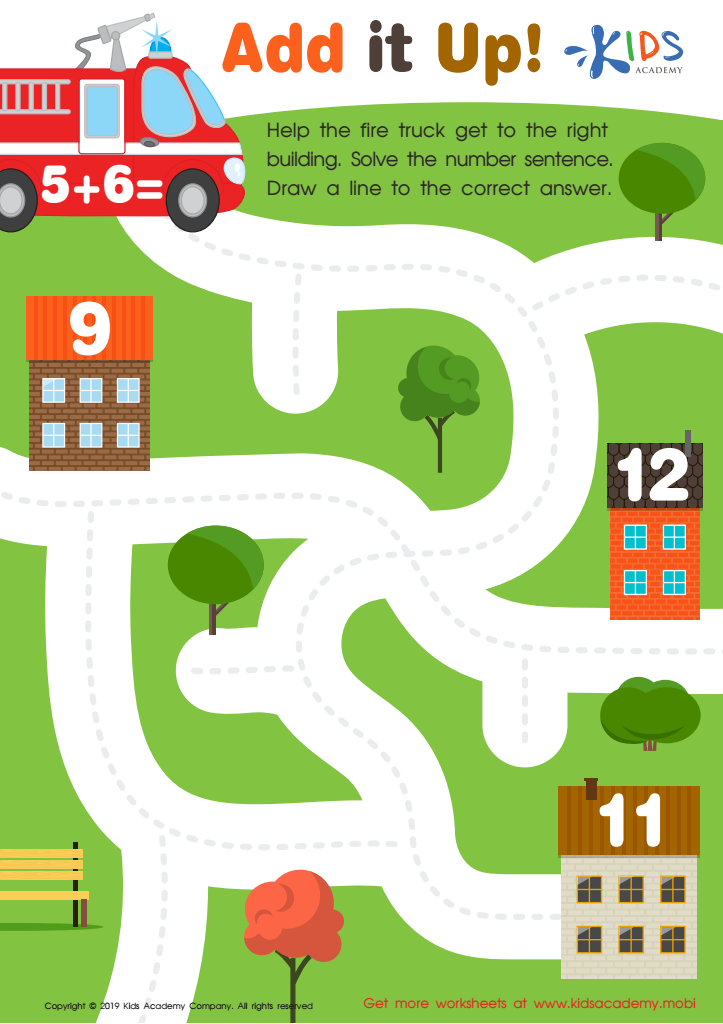

Add it Up Worksheet
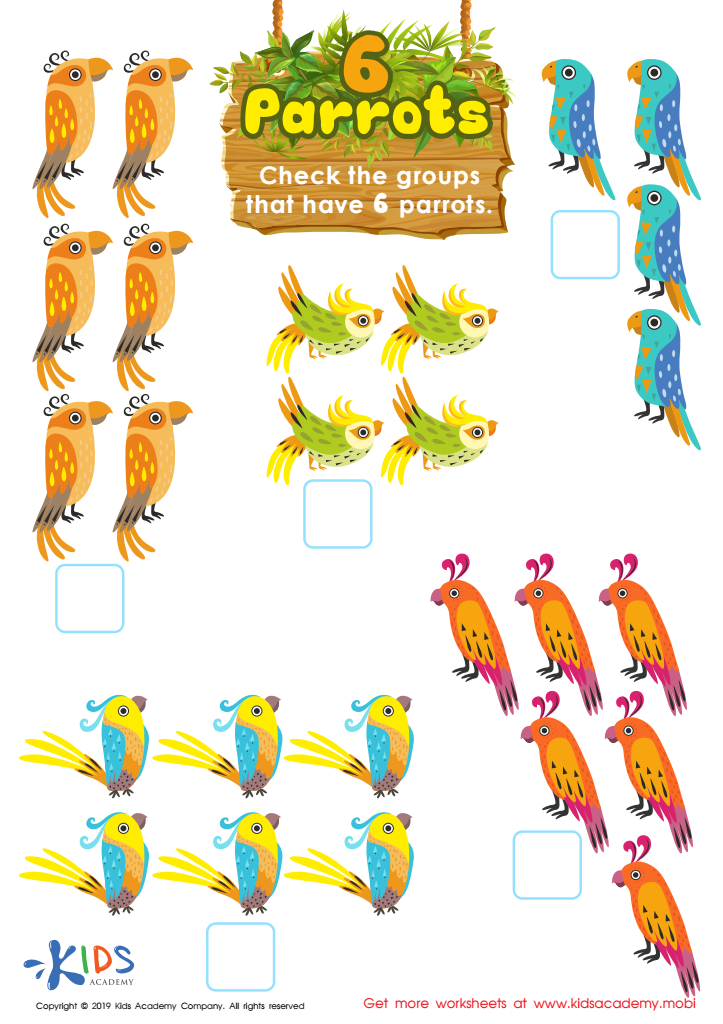

6 Parrots Worksheet
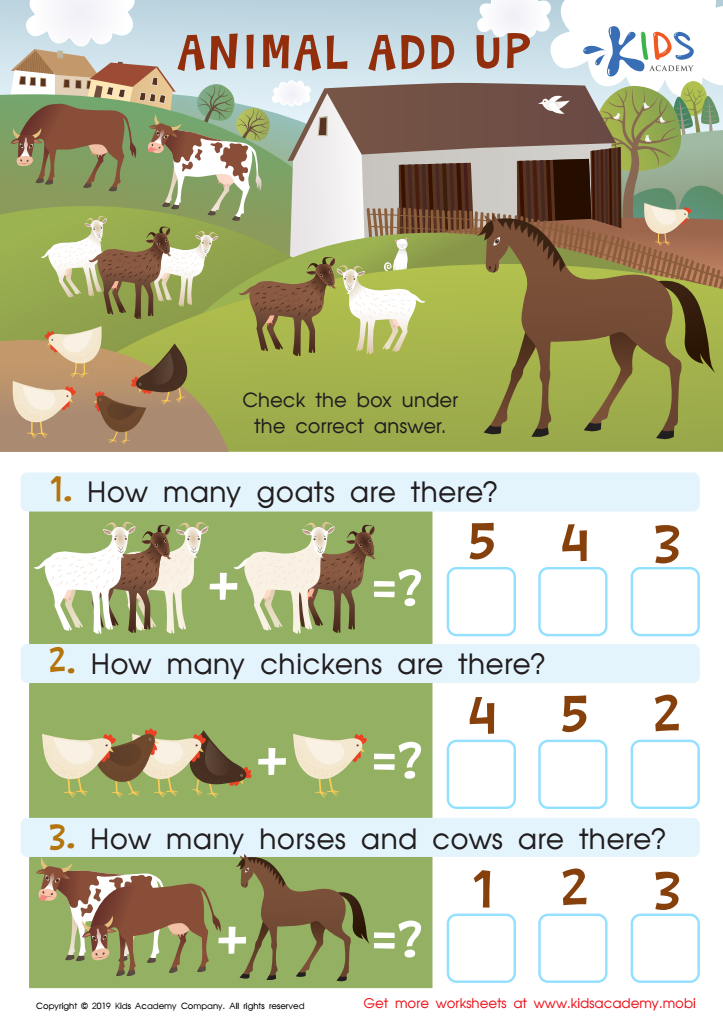

Animal Add Up Worksheet
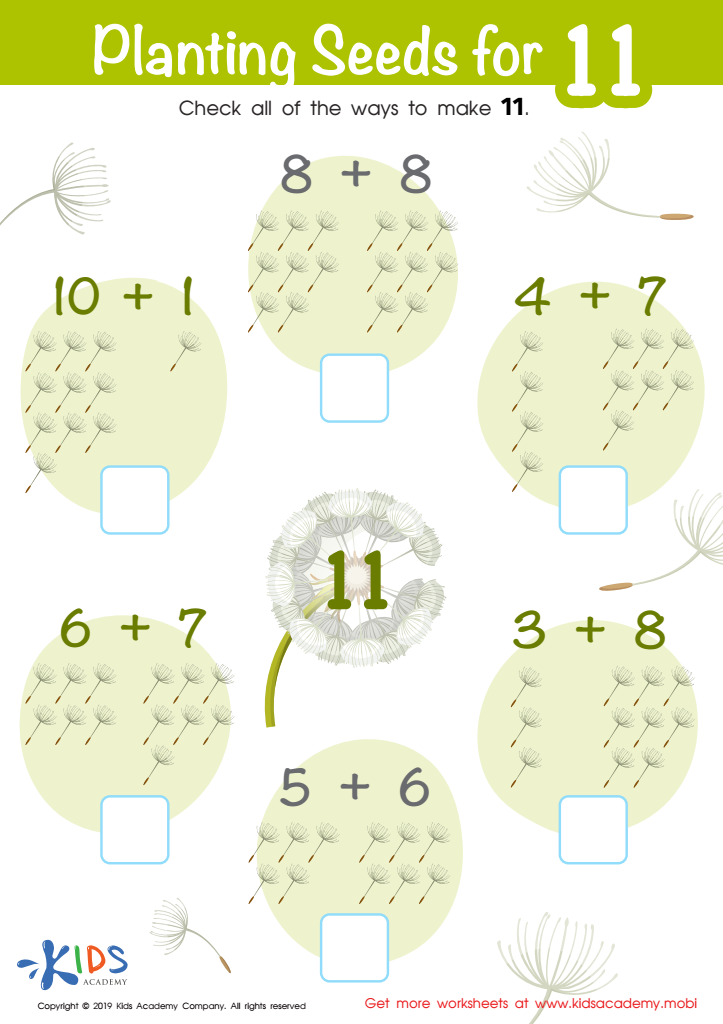

Planting Seeds for 11 Worksheet
Counting practice and easy addition are fundamental skills that lay the groundwork for future math proficiency in children ages 3 to 9. During these years, children are often in critical developmental stages where they begin to understand numbers and their relationships. Engaging in counting and simple addition activities not only enhances numeracy skills but also fosters cognitive development, improving memory and concentration.
For parents and teachers, such early math interventions can yield significant long-term benefits. Mastery of counting and addition promotes confidence, which in turn encourages a positive attitude toward math as children progress through their education. These foundational skills support more complex mathematical concepts later on, including subtraction, multiplication, and problem-solving abilities.
Additionally, incorporating counting practice into daily routines can be fun and interactive, making learning enjoyable. Games, songs, and hands-on activities captivate young learners and make abstract concepts more relatable. Furthermore, establishing these skills early can reduce math anxiety, fostering a growth mindset and resilience when faced with academic challenges. By prioritizing counting practice and easy addition, parents and teachers create supportive learning environments that empower children to thrive in their academic journey and beyond.
 Assign to My Students
Assign to My Students





















